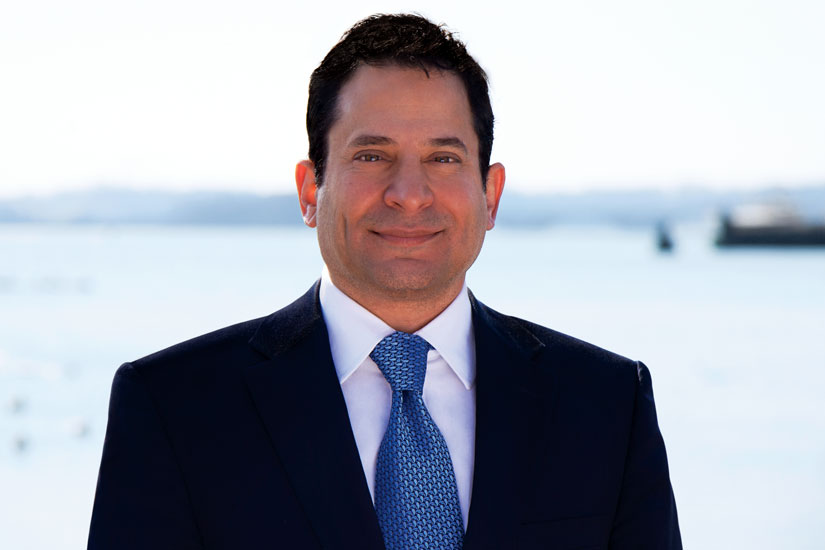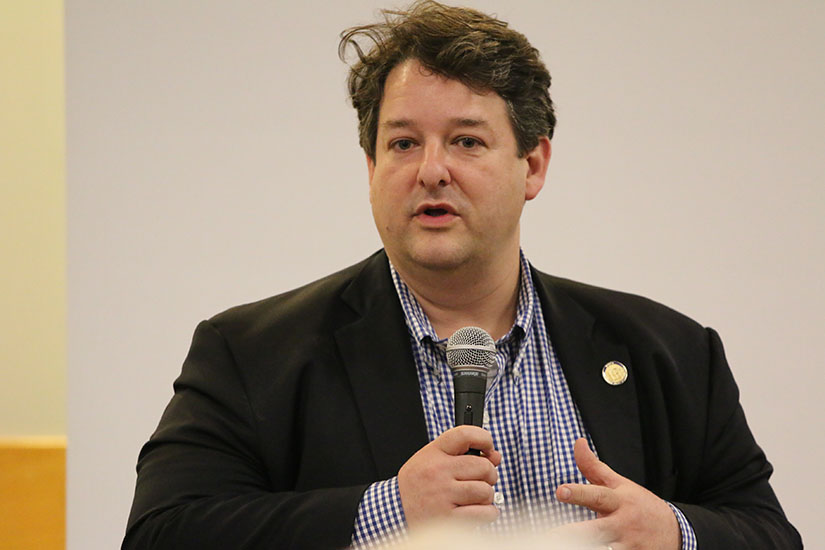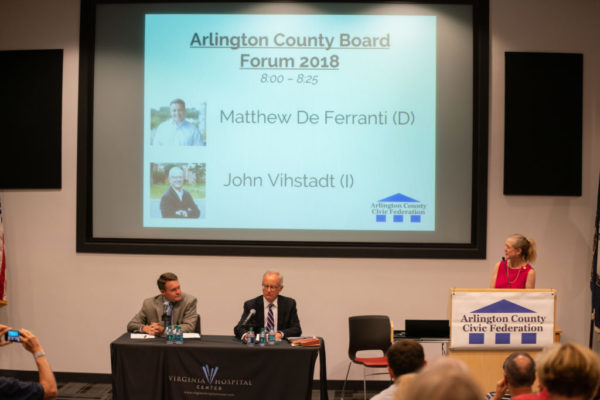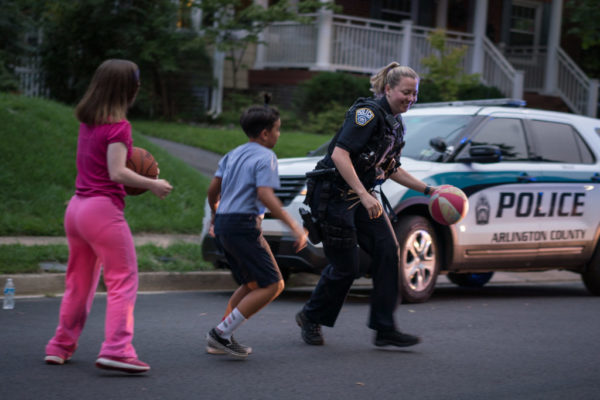Arlington’s representatives in the Virginia House of Delegates say they tackled a host of important issues, from criminal justice reform to LGBT parental rights to public health, during this year’s legislative session.
The county is represented in the state House by four elected officials — Democrats Mark Levine, Patrick Hope, Richard “Rip” Sullivan, and Alfonso H. Lopez — all of whom are up for re-election this year.
This year’s session began on January 9 and ended February 23. Here are what the delegates told ARLnow were their biggest legislative accomplishments in that time.
Del. Patrick Hope
Hope has represented Arlington in the House since 2010 and currently faces no Democratic challengers in his campaign for reelection. He says he introduced 12 bills during this year’s session, nine of which passed.
He told ARLnow that it’s difficult to choose his favorite because “I treat all my bills like my children,” but narrowed down his three biggest accomplishments in an email:
1) HB 2384 — making all Virginia schools 100 percent tobacco/nicotine free. This is significant because Big Tobacco has opposed such efforts in the past. It also is a sign that the tide is turning to recognize the dangers of cigarettes and vaping on children.
2) HB 1642 — requiring the Dept. of Corrections (DOC) to collect/report data on inmates in solitary confinement. I’ve been working with DOC for years to get the number of inmates in solitary down. We’ve decreased the number by more than 70 percent. This data collection effort will help us figure out who remains, why they are there, and if we can provide additional mental health resources to get them out.
3) HB 1933 — allow jails to treat people with serious mental illness who are unable to give consent. Current law requires that these individuals be sent to an inpatient hospital setting (mental health institution). This is part of a series of laws I’ve passed to allow treatment to occur in an outpatient or other appropriate setting in order to free up more inpatient psychiatric beds.
Del. Alfonso Lopez
Lopez is Democratic co-whip in the House of Delegates. He has served as a delegate since 2012, but now faces a challenger in J.D. Spain for his campaign for re-election this year.
Spain is a Marine Corps veteran who leads the local NAACP chapter and has said he wanted to “sharply draw a contrast” between his and Lopez’s stances on housing affordability and the achievement gap.
Lopez told ARLnow about his biggest wins this year in Richmond in an email:
- Successfully Increased Funding for Affordable Housing. In 2013, my legislation created the Virginia Affordable Housing Trust Fund. Over the years the Trust Fund has become one of the major vehicles for addressing housing instability and homelessness prevention in the Commonwealth […] This year, working with the Governor’s office, we were able to secure an additional $7 million in total revenue for the Trust Fund — increasing the biennial budget amount to $18 million (far above typical appropriations)! This is a great step forward in our efforts to help Virginia families. That being said, I believe that we must do a great deal more to address affordable housing in every corner of the Commonwealth […]
- Driver’s License Suspensions. After working on this issue for several years, I was very proud that the General Assembly finally ended drivers license suspensions for individuals who have served their time, but are unable to pay court fines and/or fees (over 600,000 Virginians are hurt by this outdated policy). […] When a person’s driver’s license is suspended, they may face a difficult dilemma: obey the suspension and potentially lose their ability to provide for their families, or drive anyway and face further punishment — or even imprisonment — for driving under a suspended license. I am very happy that this misguided policy has finally been overturned with bipartisan support. This ends what I’ve often referred to as a modern day debtor’s prison […]
- Military ID & Passport Security. Before this session, there was no provision in state law that mandated immediate notification to people whose passport or military ID numbers were stolen in an online security breach. This left the information of many Virginians (especially in our area) at significant risk. I’m proud to have introduced and passed a bill, HB 2396, that fixes this glaring hole in the law. Virginia will now require that Passport and military ID information have the same protections as bank information and social security numbers.



























